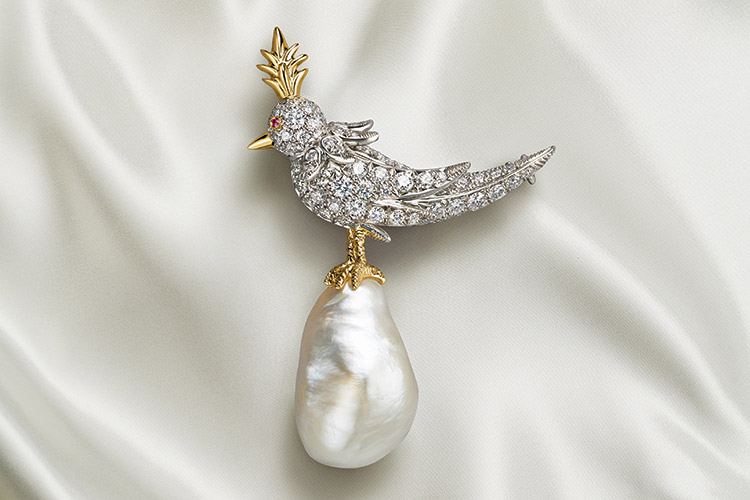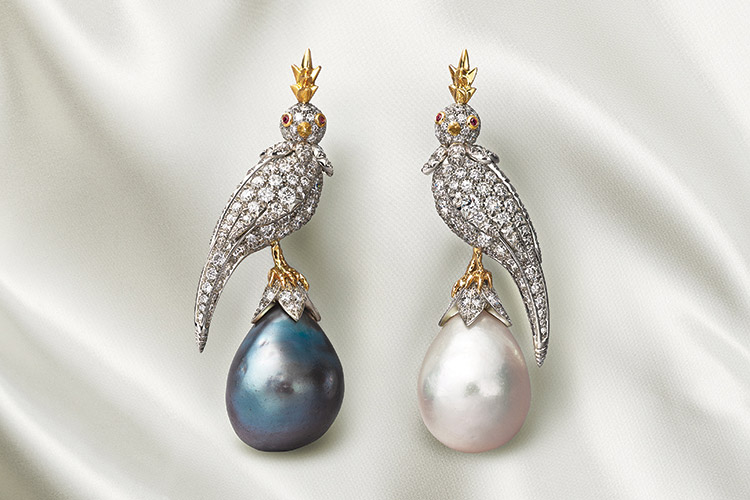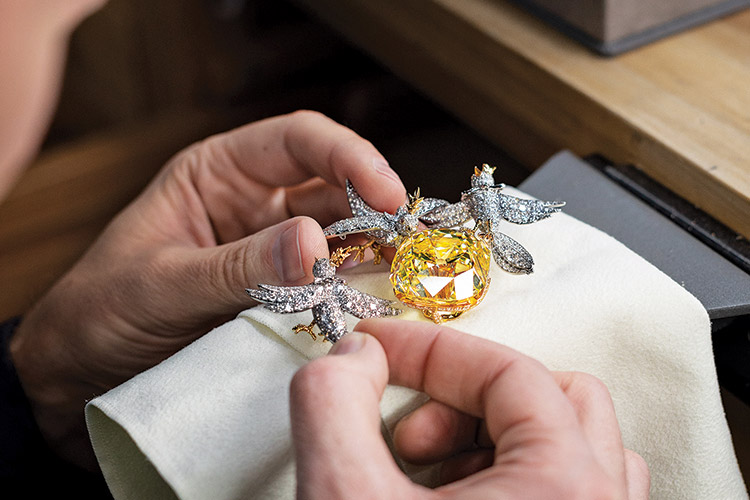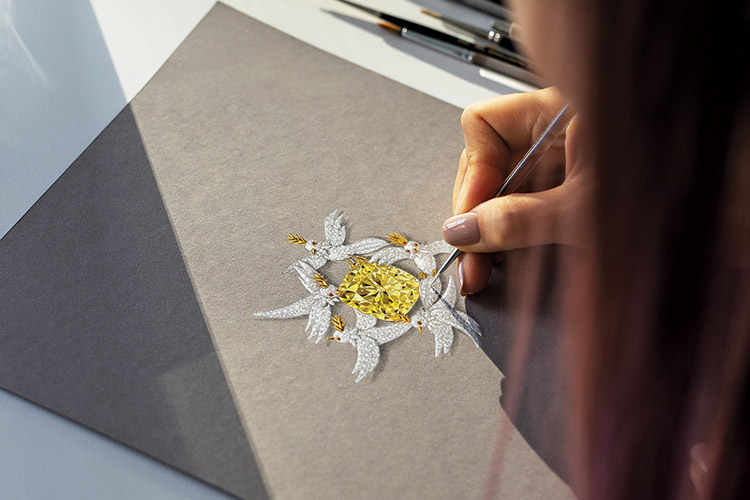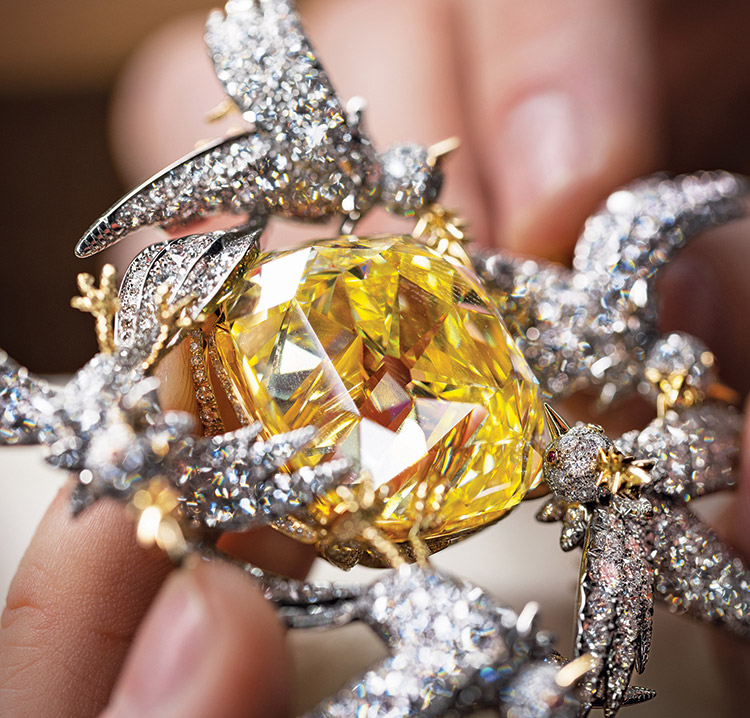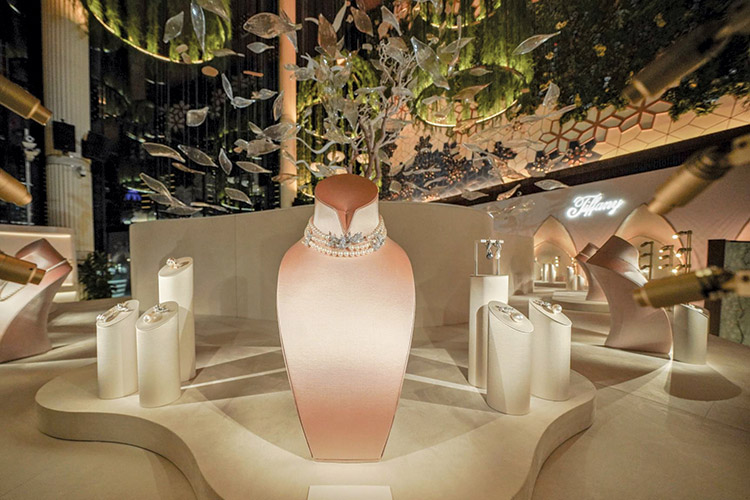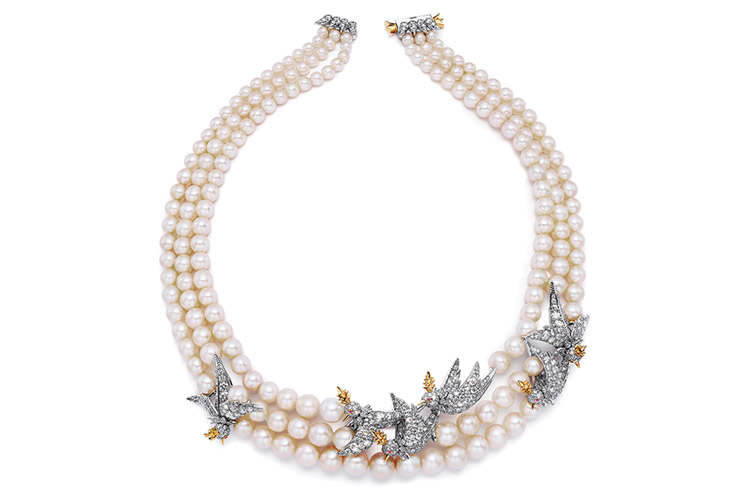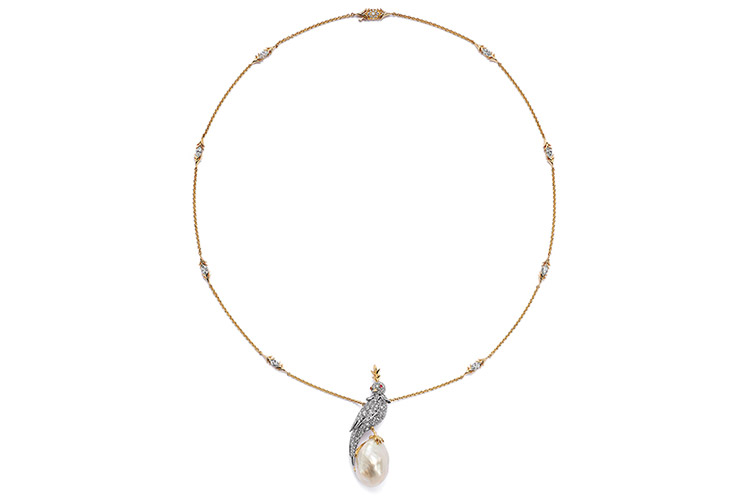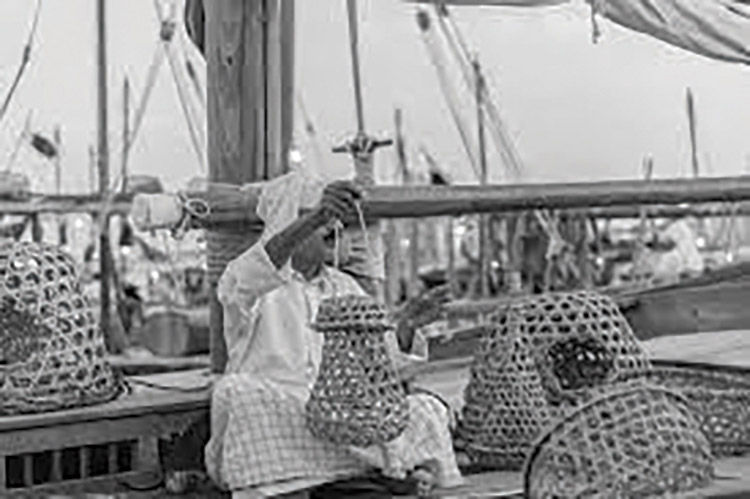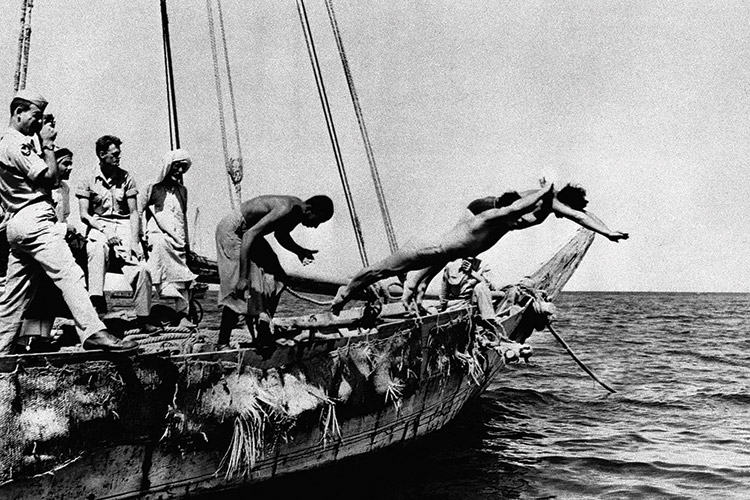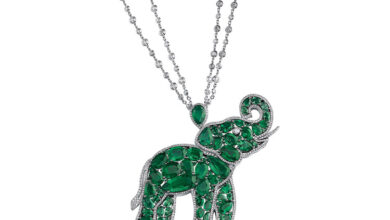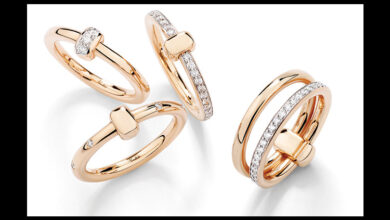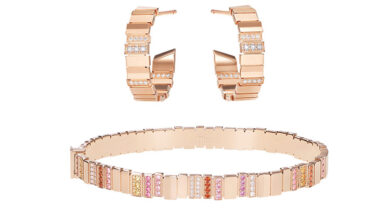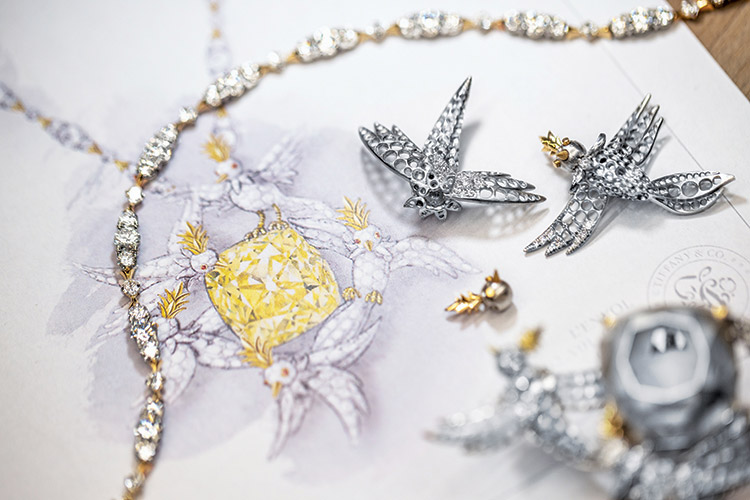
Tiffany & Co. debuted its first Bird on a Pearl collection in the beginning of 2023 after it acquired a highly prized collection of very rare, natural saltwater pearls sourced in the Gulf region. This year, the haute joaillerie maison has announced that it will be unveiling another Bird on a Pearl Capsule Collection during its Blue Book Dubai in February 2024. We bring you a sneak peek at some highlights of the collection
This exclusive high jewellery capsule collection reimagines the iconic Bird on a Rock brooch with the world’s rarest pearls. Jean Schlumberger’s signature bird, perched on a gemstone, evolves into a suite of exquisite creations set with the most impressive natural saltwater pearls. Sourced in the Gulf region and acquired from Mr. Hussein Al Fardan’s private collection, these natural saltwater pearls are recognised as the rarest and most extraordinary in the world. Crafting an entire collection with natural saltwater pearls is an extraordinary achievement. Each pearl is unique and prized for their size, shape, and unrivalled lustre.
The natural seawater pearls featured in this special capsule collection were hand selected by Tiffany from the private collection of Al Fardan, who is known as one of the world’s leading authorities in natural saltwater pearls. The Al Fardan family legacy in pearl trading in the Gulf spans back to the 19th century. Al Fardan, who owns the largest collection of natural saltwater pearls in the world, opened his doors to Tiffany to curate the pearl selection within this capsule collection.
Tiffany was incredibly fortunate to be the first jewellery house to purchase from Al Fardan’s highly coveted private collection of natural pearls. To select the pearls, Al Fardan took the Tiffany team on a tour through his prestigious personal collection, where the team was able to hand-select the most impressive pearls, and some of Al Fardan’s favourites, to re envision the iconic Jean Schlumberger motif – Bird on a Rock.
The Gulf’s waters have been fished for pearls since ancient times and are home to the oldest pearl fisheries in the world. Prior to the discovery of oil reserves, the economy relied heavily on pearl trading, with the 18th and 19th centuries turning into the height of the natural pearl trade. By the mid- to late 1900s, advances in pearl culturing brought about a dramatic decline in the natural pearl trade and pearling nearly vanished from the Gulf. Many divers honour their loved ones by practicing the old methods of pearl diving.
The discovery of oil made Qatar one of the richest countries in the world, however, the tiny Gulf nation has not forgotten its seafaring roots. At the height of the pearl trading, the industry represented almost 95% of the income of those living along the Gulf. Divers set sail on months-long voyages to free dive to extreme depths of the ocean to retrieve oysters. Today, pearls are highly honoured throughout Qatar as an homage to the sacrifice their ancestors made that ultimately allowed their nation to prosper.
The Bird on a Pearl collection is a testament to Tiffany’s legacy in uplifting the most extraordinary and rare gemstones in the world. Out of 10,000 wild oysters, only one will yield a natural pearl suitable for jewellery and of this small number, only a fraction is considered Tiffany quality. Finding just one Tiffany quality natural pearl is exceptional. The rarity in crafting an entire collection of natural pearls such that all possess superlative lustre, colour, shape, and size is groundbreaking. Natural pearls are no longer commercially fished because of their extreme rarity as a result of overfishing coupled with advances in culturing pearls.
